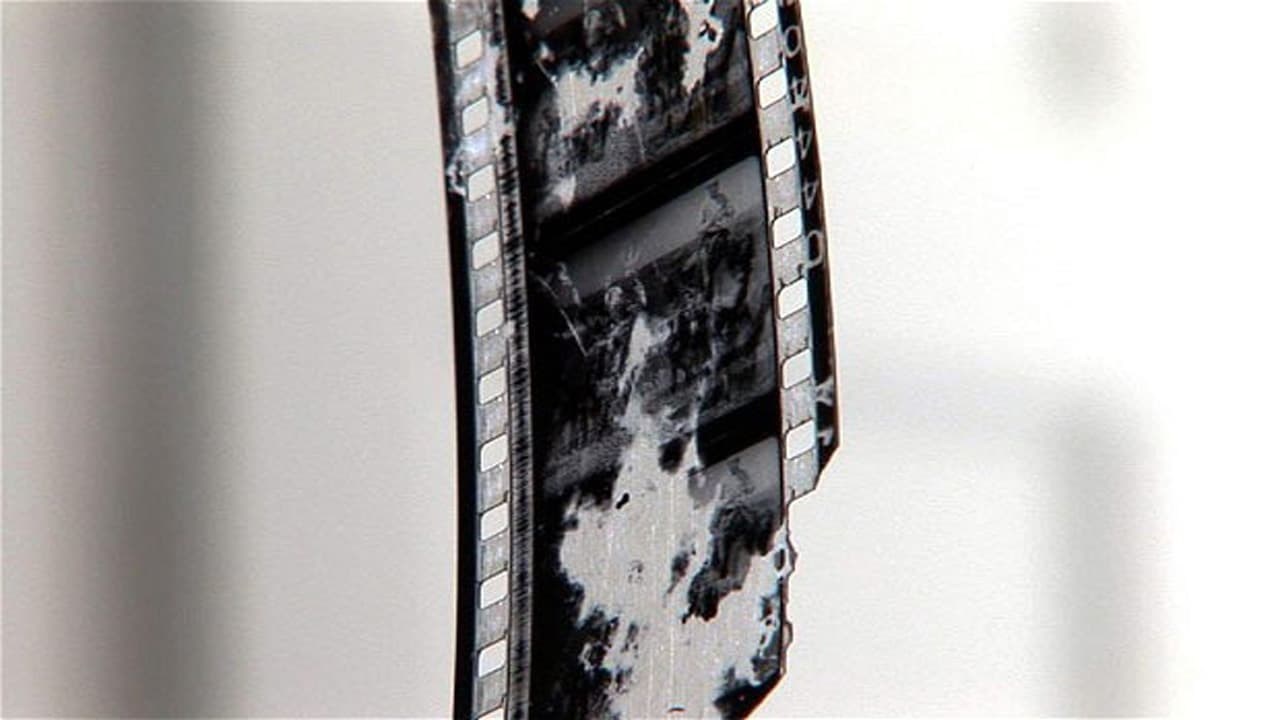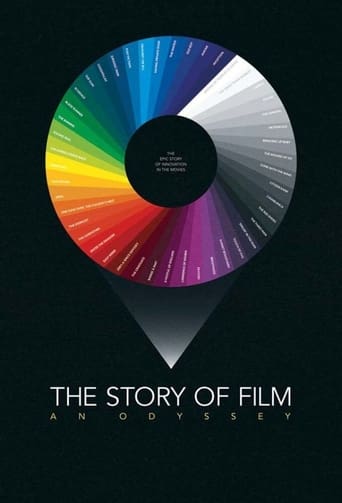

First of all, no I'm not going to poke fun at his accent (that's the least of my worries).Pros: The history of world cinema is the only strength I can think of outside interviews and extensive use of film clips (especially Third World cinema from Africa to Iran).Cons: Definitely opinionated-the one scene that drove me crazy is where he considers Top Gun as an example of bad commercial cinema while Blue Velvet represents good personal cinema but really both are awesome in their own merits, there are some films I can do without (Lars van Trier, Pasolini, In the Realms of the Senses) for a person with OCD, I didn't like the ending which is less than hopeful.
... View MoreI watched every episode of the Story of Film on TCM and quite frankly found it very educational. As a film buff, with a pretty good knowledge of the history of cinema, I thought I had a good grasp of what has come before but Mark Cousin's epic documentary with a focus on International cinema, and not just the West, really opened me up to so many foreign films that I was not aware of it. So, thank you Mark for that! There's been much talk about Mark's accent as the narrator. Frankly, since this series is about Mark's own vision of cinema's history, it makes sense for him to narrate. Because all along he is the one telling us what he thinks of this film or that, this director and another.It would not have made sense if SOF was narrated by someone else, because the points being brought up in this 15-hour long documentary aren't necessarily cinema facts, but one person's rather educated opinion. So, I have no issue with Mark's personal narration.As for his accent, why such a fuss? Why do we need to have generic, impersonal narrations all over the place. If Michael Moore gets to narrate his own documentaries and telling us how feels about various topics, why shouldn't Mark do that.If the real fuss about Cousin is that he is not American, then the blame is on us for being so uptight and not him.Good work Mark and thanks for expanding my cinema knowledge.
... View MoreI just finished watching this series and was really disappointed in the IMDb reviews. Here are my pointers for those who are interested in seeing this considerable work.1. The majority of the people of the world have accents different than those found in America. If you can't get beyond a person's accent to hear the content of what he/she is saying, stick with Entertainment Tonight.2. This series is like a "string theory" of film- everything is connected to everything. While some of the reviewers could not follow the train of thought, much of what is documented is the initial use of what are now considered stock shots and plots and how they are still being used today. Film history is not just what films were made, but also the creation and evolution of the art form.3. This series also deals heavily in international cinema. Episode 3 deals with cinema in the 1920's in Paris, Berlin, Moscow, Shanghai and Tokyo. Episode 6 shows works from Egypt, India, China, Mexico that was created in the 1950's. Episode 8 chronicles the birth of African cinema in the 1970's. There is more about international cinema in this series than I have ever seen in any program about film.So, if you want to see a comprehensive series on the history of film, as opposed to the history of Hollywood, this is the series for you.
... View MoreThis documentary is a bold, encompassing lengthy journey into film history. By delving into movies he deems to be monumental and the particular scenes that make these movies monumental we are granted a very subjective interpretation of film history. It is not simply a history lesson in film. The chronological documentary is the creator's expression of how he views films and is therefore a work of art in and of itself. Wonderful to enter this man's portal into film since it exposes us to not only movies we never heard of but gives us an expert's view of what makes certain film's and scenes so important. It is innovation that is important and innovation which becomes influential. He sometimes emphasizes world cinema perhaps influencing the great American film makers. He'll choose to show a particular scene from a movie and go into the lighting, the camera strategies, the technology, the atmosphere created, the acting, the writing, the political and sociological situation of the moment when made....everything. He wonderfully makes it long so we can get deep into this. We might not agree on quite the level of importance he imparts on particular films but we can sense he is a passionate expert with a hyper-awareness. This creates a rich tapestry for us to soak in and will enrich our artistic souls and how we will forever see a movie in the future. By delving so deeply into film history it actually goes into a bit of world, cultural and politically history. It is a minor travelogue as well with some nice scenes of the foreign lands. The maker feels films reflected the time and place in which they were made. Sometimes as essences and shadows of the era and locale and other times rebelling against it. Film is both impacted by culture and politics and film can also even influence and change society. A lot of films that we love might shockingly only get mentioned for a mere minute. I felt that perhaps the Godfather and Lawrence of Arabia were more influential and deserved more time in this lengthy tapestry of film history. But every other documentary on film has berated us with how great these movies are. We already know it and can see documentaries just on the making and symbolism of these films or these great American filmmakers. The exposure to the rest of the world is one of the great achievements this documentary accomplishes. There are a billion people in India where the movie Shoaly played for 7 years. It had a profound impact on that country of a billion plus and I never heard of it until I saw this documentary. Perhaps Shoaly might be more influential to more people and the world than my favorite movies are. There are still whole episodes dedicated to films made in the United States. There is an episode that went into American movies from the 70s. There is a whole entire episode on Hollywood in the 1920s. Despite being a documentary about world cinema the US still is the largest country represented in the story of film. The most amazing part is his understanding of the artistic and political expressions emanating from particular scenes. Absorbing his critiques and commentary on film can gave not only a new way to look at film but a new way to look and think about many different art forms. Things that can do this are the greatest things ever created.
... View More